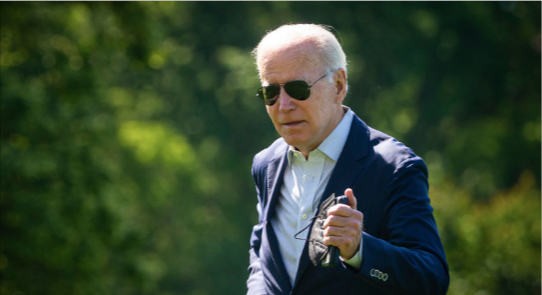
STRATEGIC ASSESSMENT. As the 47th Vice President of the United States, serving under Barack Obama for eight years from 2009 to 2017, and with decades of experience in the U.S. Congress, Biden has established himself as an expert on international affairs and foreign policy. By almost any measure, Biden is a strong believer in American power and favors an active role for the United States in world affairs. In an essay in Foreign Affairs from the spring of 2020, titled ‘Why America Must Lead,’ Biden lays out a vision for restoring American influence in the world, through reengaging with longstanding allies and confronting adversaries.
On the global stage, a Biden presidency would instantly restore both credibility and deterrence, especially in pushing back against the overtures of notorious dictators like North Korean leader Kim Jong Un and Russian President Vladimir Putin. For the past four years, Donald Trump has cozied up to strongmen, praising human rights violators like Egpytian President and Turkish President Recep Tayyip Erdogan. By pursuing a transactional approach to foreign policy, Trump has devalued essential alliances like NATO while deferring to authoritarians like China’s Xi Jinping, noting in late January that ‘China has been working very hard to contain the Coronavirus. The United States greatly appreciates their efforts and transparency. It will all work out well. In particular, on behalf of the American People, I want to thank President Xi!’ A Biden presidency would be tough on Beijing and would likely be welcomed in most European capitals, from Brussels to Berlin.
In the Middle East, a Biden presidency could lead to a reevaluation of the United States’ relationship with Saudi Arabia and the potential for diplomatic engagement with Iran, thus altering the geopolitical balance of power in the region. Given the erratic leadership of Saudi Crown Prince Mohammed bin Salman, from his alleged role in the murder of journalist Jamal Khashoggi to his disastrous war in Yemen, MBS could find himself marginalized as Washington takes stock of the pros and cons of its relationship with Riyadh. Similarly, a Biden administration would likely look to restart negotiations with Iran to resuscitate the Joint Comprehensive Plan of Action (JCPOA), an agreement abdicated by the Trump administration in the prelude to its failed campaign of ‘maximum pressure.’ Less clear is what strategy a Biden administration would adopt in countries where the United States currently has troops deployed, including Afghanistan and Iraq.
A Biden administration would also focus on tackling issues like climate change, promising to rejoin the Paris Climate Accord on the first day of his presidency. Among his many pledges, Biden has also promised to pursue an extension of the new START treaty, also known as the Treaty on Measures for the Further Reduction and Limitation of Strategic Offensive Arms, calling it ‘an anchor of strategic stability’ between the United States and the Russian Federation. Still, any forecasting of what a Biden foreign policy will look like cannot simply ignore that, if elected, much of his Administration’s bandwidth will initially be occupied by domestic issues, given the challenges resulting from COVID-19, rebuilding the economy, and working to heal the deep fissures that are so apparent in American society. This is especially relevant after four years of divisive rhetoric from President Trump and the proliferation of anti government militias, conspiracy theorists, and other far-right extremists, including neo-Nazis and violent white supremacists (TSC).





